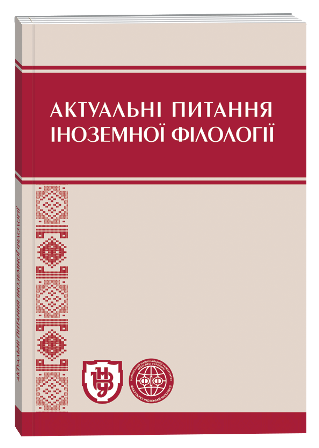THE CONCEPT OF «VICTORY» THROUGH THE PRISM OF B. JOHNSON'S POLITICAL DISCOURSE IN UKRAINIAN TRANSLATION (BASED ON THE WORK «THE CHURCHILL FACTOR: HOW ONE MAN MADE HISTORY»)
DOI:
https://doi.org/10.32782/2410-0927-2025-22-6Keywords:
cognitive linguistics, concept, conceptual core, conceptual feature, political discourse, «The Churchill Factor. How One Man Made History»Abstract
The article is devoted to the study of the concept of ‘victory’ through the prism of political discourse of Boris Johnson in the original and translation of his book «The Churchill Factor. How One Man Made History». The article examines the notion of ‘concept’, which is a cornerstone concept of cognitive linguistics, the author offers their own definition. The study examines the linguistic means that form the concept of ‘victory’. In particular, Johnson contrasts ‘victory’ and ‘tyranny’, which enhances the significance of Churchill's historical role. Johnson's rhetoric is distinguished by its elevated style and the use of powerful images that form a heroic narrative. The Ukrainian translation retains this effect, although there are changes in the syntactic structure due to the particularities of the Ukrainian language. In addition, there is some neutralisation at the stylistic level. The article also analyses how Johnson presents Churchill's personal and statesmanship achievements as stages on the way to his main victory in World War II. The author uses adjectives such as ‘brave’ and ‘irreplaceable’ to emphasise the strength of his character. Special attention is paid to the categorical opposition ‘victory or death’, in particular in the context of Churchill's refusal to negotiate with Nazi Germany. Thus, the conceptual core is reinforced by conceptual features that are verbalised at the lexical and grammatical levels. It is worth emphasising the increased emotionality of statements and through the use of emotionally coloured adjectives and adverbs in the English text. In general, the article proves that the concept of ‘victory’ in Johnson's political discourse is closely related to Churchill's leadership qualities and his historical heritage. The linguistic analysis shows that Johnson creates an emotionally charged narrative that elevates Churchill to the level of a national hero. The Ukrainian translation is distinguished by its reduced emotional saturation of the text, neutralisation of utterances, and lowering of the conceptual register.
References
Ділай І.П., Ділай М.П. Когнітивна корпусна лінгвістика: сучасний стан і перспективи. Нова філологія, (83), 2021. С. 71–78.
Полюжин М. Поняття, концепт та його структура. Науковий вісник Східноєвропейського національного університету імені Лесі Українки. Серія : Філологічні науки. Мовознавство. Луцьк, 2015. № 4. С. 212–22.
Карпенко О.Ю. Проблематика когнітивної ономастики. Одеса: Астропринт, 2006. 326 с.
Kemmerer D. Cognitive Neuroscience of Language. 2nd ed., Routledge, 2022. 702 p.
Tyler A. Second Language Acquisition. The Cambridge Handbook of Cognitive Linguistics / edited by Barbara Dancygier. Cambridge: Cambridge University Press, 2017. P. 73–90.
Evans V. How words mean: Lexical concepts, cognitive models, and meaning construction. Oxford: Oxford University Press, 2009. 377 p.
Селіванова О.О. Сучасна лінгвістика: напрями і проблеми. Полтава: Довкілля-К, 2008. С. 712.
Джонсон Б. Фактор Черчилля. Як одна людина змінила історію / пер. з анг. Ю. Гірича. Харків: Віват, 2022. 400 с.
Johnson B. The Churchill Factor: How One Man Made History / Boris Johnson. London: Hodder & Stoughton, 2014. 432 p.
Словник – тлумачний словник української мови, орфографічний словник онлайн. URL: https://slovnyk.ua/index.php?swrd=величний (дата звернення: 23.03.2025).








